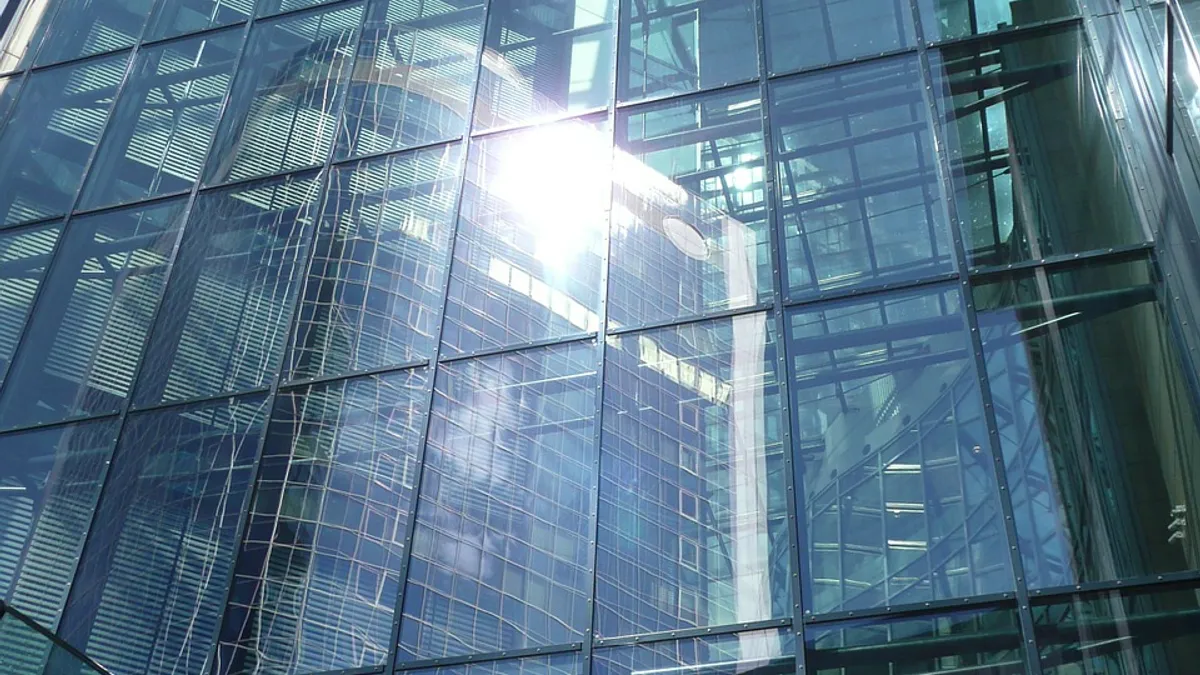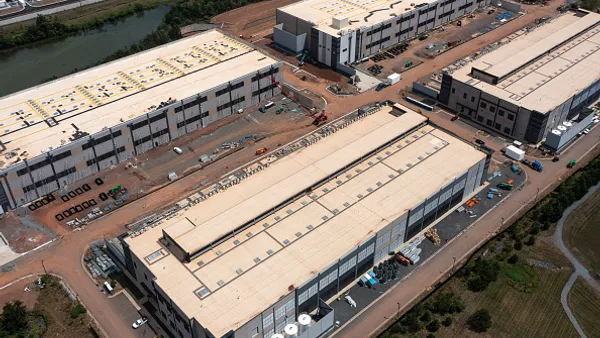Dive Brief:
- California-based Kinestral Technologies has unveiled a smart-tinting glass called Halio that provides a range of transparency from clear to opaque that can manage interior light exposure and provide privacy, according to New Atlas.
- Building occupants can control tint level with voice commands, via smartphone or with a wall-mounted dimmer switch. Tint level can also be programmed to pre-set environmental conditions including weather, UV exposure and time of the day.
- The product will be available in selected markets next year, with global availability not expected until 2018.
Dive Insight:
Along with concrete, glass continues to push the building material boundaries as smart product makers look to embed technologies, performance sensors and environmental controls into the structure and substrate of the built environment.
In November, Tesla and SolarCity announced the availability of textured glass solar shingles, offering roof-top power generation with enhanced aesthetics at a cost comparable to traditional construction due to savings recouped from moving the lighter-weight product through material supply chains.
According to a MarketsandMarkets report, the global smart glass market is expected to spike from $2.3 billion to $8.1 billion by 2022, with an annual growth rate of 19.2% between 2016 and 2022. Fueling smart glass growth is the incorporation of glass as a primary building material in marquee civil, commercial and higher education construction projects. As part of NYU’s ongoing expansion, the university is building a $1 billion building with an all-glass façade due for delivery in 2021.
Already being explored for applications in transportation, electrochromic technology — which is most likely the tech behind Kinestral's product — offers building designers flexibility and increased environmental control over clear, traditional glass not typically lauded for its privacy or energy efficiency properties.














